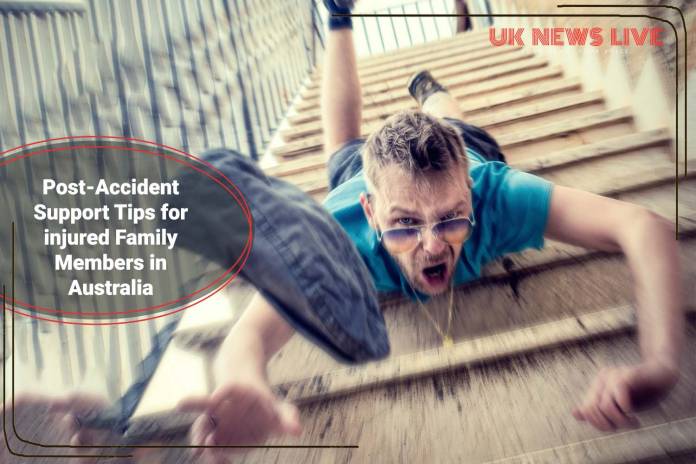According to 2018 statistics, 30% of Australians met disability-causing accidents on the roads, 28.6% at work, and 18.1 % of people with a disability experienced an accident at home!
If your family member also met with such life-altering injuries from an accident, it’s normal to feel overwhelmed. However, you need to calm yourself and seek medical help as soon as possible.
Once they are discharged, the real struggle starts. You must consider various things to help them emotionally, medically, and logistically, like the following!
1. Take care of research and paperwork

Depending on the type of accident they got involved in, there might be some paperwork regarding medical facilities and insurance. If the accident involved any automobile, check if they’re eligible for auto insurance.
Help them fill out necessary documents for hospital admission/discharge and insurance claims or consult a personal injury lawyer for legal support.
Further research and discuss the best treatment plans to prepare your family member. This will give you both an idea about what kind of rehabilitation they must undergo.
2. Learn about the actual treatment plan
If the injury is serious, the treatment will be long, expensive, and even overwhelming. So, attend the doctor’s appointment to learn about the treatment plan. It’s best to write everything down so that there’s no mistake and ensure swift recovery.
Get the names of the doctors/therapists, treatment facilities, schedules, medicine dosages, and recovery timelines. Learn about the treatment procedures in detail and the overall expenses.
Gather all the information in detail so that even if you fail to take them for appointments, someone else can!
3. Get a support provider

If you’re a working professional, you won’t be able to offer 24/7 support to your family member. Even if you stay at home mostly, you also have chores to take care of. It can be pretty stressful to balance an entirely new responsibility out of the blue.
So, connect with an Australian healthcare recruitment agency and seek an in-home support care provider. Clearly communicate the types of support you’ll need from them.
This can include day-to-day personal activities like grooming, eating, and toilet usage, daily tasks, transportation to and from health appointments, learning life skills to recuperate slowly, reminding them to have medicines, and much more.
Once you share the exact help you need, they’ll connect you with the best experts!
4. Listen to them attentively
Individuals with unexpected serious injuries have a lot on their mind due to the sudden change of lifestyle. They feel frustrated and need someone to talk to, share their thoughts, and vent. This is especially true when the rehabilitation period is long.
So, take time to talk with them. Listen to every single detail they share and try to understand their emotions.
If they want to know about the progress in therapy or discuss the accident, go along with it. However, if they don’t want to mention it, don’t push them.
Check their body language to understand whether they feel uncomfortable talking about things. If you notice any discomfort, switch to another topic.
5. Offer them emotional and psychological support

An accident that made them unable to lead life like usual takes a huge emotional toll. So, reassure them with plenty of emotional support.
Whenever they break down, remind them you’ll face the situation together. Even if you can’t experience or understand their situation completely, tell them you’ll be there at all times.
Never belittle their struggles or tell them to be more optimistic. Such unsolicited advice never helps. Refrain others from saying similar things as well.
They might also be stressed, anxious, resentful, overwhelmed, and traumatized. Seek help from a therapist if they get regular night terrors or panic attacks post-accident.
6. Take care of yourself and seek help
A loved one’s life-altering accident can lead to intense psychological concerns even for caregivers. If you feel burnt out, take some time away and calm yourself. Visit a new place and rejuvenate yourself. You can also spend time outdoors to distract yourself.
If you’re drowning in feelings of helplessness, ask someone to give you a pep talk and motivate you.
However, if you’re anxious about clearing medical debts or tired of dealing with insurance companies, seek help from friends and family.
Don’t feel ashamed to seek help in any form. However, if there’s nobody, join support groups and learn from others’ experiences.
Conclusion
Post-accident scenes are challenging, but these considerations will help your loved one recover faster. So, have faith, do your best, communicate clearly, and things will get better!






























